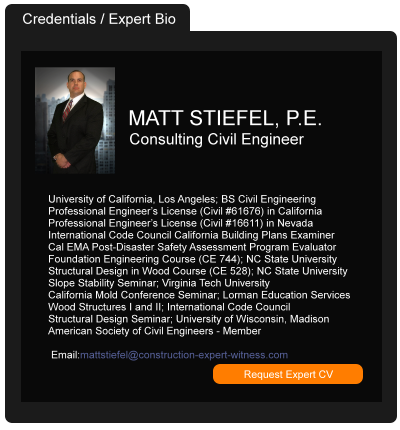Connecticut Builders Right To Repair Current Law Summary:
Current Law Summary: Case law precedent
Building Expert Contractors Licensing
Guidelines Fairfield Connecticut
License required for electrical and plumbing trades. No state license for general contracting, however, must register with the State.
Association Directory
Local # 0780
433 Meadow St
Fairfield, CT 06824
http://www.buildfairfieldcounty.com
Fairfield Connecticut Building Expert 10/ 10
Builders Association of Eastern Connecticut
Local # 0740
20 Hartford Rd Suite 18
Salem, CT 06420
http://www.baec.net
Fairfield Connecticut Building Expert 10/ 10
Home Builders Association of New Haven Co
Local # 0720
2189 Silas Deane Highway
Rocky Hill, CT 06067
http://www.hbanewhaven.com
Fairfield Connecticut Building Expert 10/ 10
Home Builders Association of Hartford Cty Inc
Local # 0755
2189 Silas Deane Hwy
Rocky Hill, CT 06067
http://www.hbahartford.com
Fairfield Connecticut Building Expert 10/ 10
Home Builders Association of NW Connecticut
Local # 0710
110 Brook St
Torrington, CT 06790
http://www.hbanwct.org
Fairfield Connecticut Building Expert 10/ 10
Home Builders Association of Connecticut (State)
Local # 0700
3 Regency Dr Ste 204
Bloomfield, CT 06002
http://www.hbact.org
Fairfield Connecticut Building Expert 10/ 10
Building Expert News and Information
For Fairfield Connecticut
Seeking the Urban Lifestyle in the Suburbs
Responding to Ransomware Learning from Colonial Pipeline
How VR and AR Will Help in Remote Expert Assistance
Recycled Water and New Construction. New Standards Being Considered
Supreme Court Rejects “Wholly Groundless” Exception to Question of Arbitrability
Construction Defects Survey Results Show that Warranty Laws Should be Strengthened for Homeowners & Condominium Associations
What Cal/OSHA’s “Permanent” COVID Standards Mean for Employers
Employee Handbooks—Your First Line of Defense
Nevada Judge says Class Analysis Not Needed in Construction Defect Case
Building Permits Up in USA Is a Good Sign
Court Finds that Subcontractor Lacks Standing to Appeal Summary Judgment Order Simply Because Subcontractor “Might” Lose at Trial Due to Order
When is Construction Put to Its “Intended Use”?
New York Court Rejects Owner’s Bid for Additional Insured Coverage
Exploring the Future of Robotic Construction with Dr. Thomas Bock
Should CGL Insurer have Duty to Defend Insured During Chapter 558 Notice of Construction Defects Process???
COVID-19 Is Not Direct Physical Loss Or Damage
Noteworthy Construction Defect Cases for 1st Qtr 2014
Architect Not Responsible for Injuries to Guests
Florida’s Citizens Property Insurance May Be Immune From Bad Faith, But Is Not Immune From Consequential Damages
Delays in Filing Lead to Dismissal in Moisture Intrusion Lawsuit
Pennsylvania Superior Court Fires up a Case-By-Case Analysis for Landlord-Tenant, Implied Co-Insured Questions
With an Eye Already in the Sky, Crane Camera Goes Big Data
False Implied Certifications in Making Payment Requests: What We Can Learn from Lance Armstrong
New Mandatory Bond Notice Forms in Florida
Florida Enacts Sweeping Tort Reform Legislation, Raising Barriers to Insurance Coverage Claims
Another Municipality Takes Action to Address the Lack of Condominiums Being Built in its Jurisdiction
Coping with Labor & Install Issues in Green Building
Indicted Union Representatives Try Again to Revive Enmons
Construction Delayed by Discovery of Bones
You Can Take This Job and Shove It!
Traub Lieberman Attorneys Recognized in 2019 Edition of Who’s Who Legal
Classify Workers Properly to Avoid Expensive Penalties
Baltimore Project Pushes To Meet Federal Deadline
Aurora Joins other Colorado Cities by Adding a Construction Defect Ordinance
County Sovereign Immunity Invokes Change-Order Ordinance
One World Trade Center Tallest Building in US
Contractors Must Register with the L&I Prior to Offering or Performing Work, or Risk Having their Breach of Contract Case Dismissed
Third Circuit Affirms Use of Eminent Domain by Natural Gas Pipeline
ASCE Statement on House Passage of the Water Resources Development Act of 2024
What is Bad Faith?
A Court-Side Seat: May Brings Federal Appellate Courts Rulings and Executive Orders
Subsequent Owners of Homes Again Have Right to Sue Builders for Construction Defects
Beyond the Disneyland Resort: Museums
COVID-19 Damages and Time Recovery: Contract Checklist and Analysis
Insurer's Motion to Dismiss Business Interruption, COVID-19 Claims Under Pollution Policy Fails
SB800 CONFIRMED AS EXCLUSIVE REMEDY FOR CONSTRUCTION DEFECT CLAIMS
COVID-19 Response: Key Legal Considerations for Event Cancellations
Case Dispositive Motion for Summary Judgment Granted for BWB&O’s Client in Wrongful Death Case!
Ex-Detroit Demolition Official Sentenced for Taking Bribes
Texas Legislature Puts a Spear in Doctrine Making Contractor Warrantor of Owner Furnished Plans and Specifications


































































